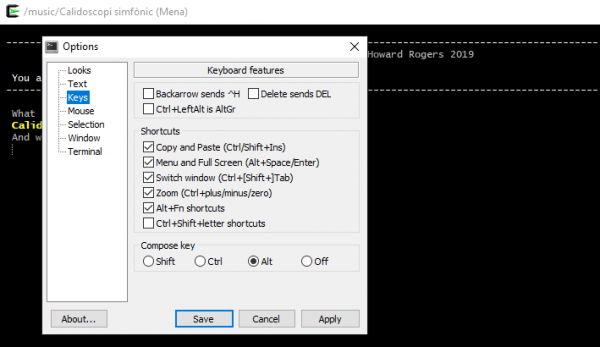The Classical CD Ripper FAQ
1.0 There are already lots of CD rippers. Why write another?
Whilst it's true that there are lots of CD rippers out there, none of them met my specific ripping and tagging needs very well. My favourite CD ripper on Linux, for example, is abcde. It does a superb job of ripping a CD safely (that is to say, it cares more about accuracy than speed). But it spends a lot of time getting CD metadata (composer, work name, track titles and so on) from online CD databases and then prompting you to edit it in not very obvious ways. The metadata sourced for pretty much any classical CD you can think of is almost always complete rubbish, so abcde spending all that time and effort fetching and applying that metadata to my music files is a complete waste of time, as far as I'm concerned. On the other hand, it's true that abcde can be configured not to consult those online databases at all, which is excellent news... except that then your ripped music is left with absolutely no metadata at all.
I wanted a happy medium of allowing myself to specify some metadata, but not to have to fight bad online sources of metadata in the process! [...]



